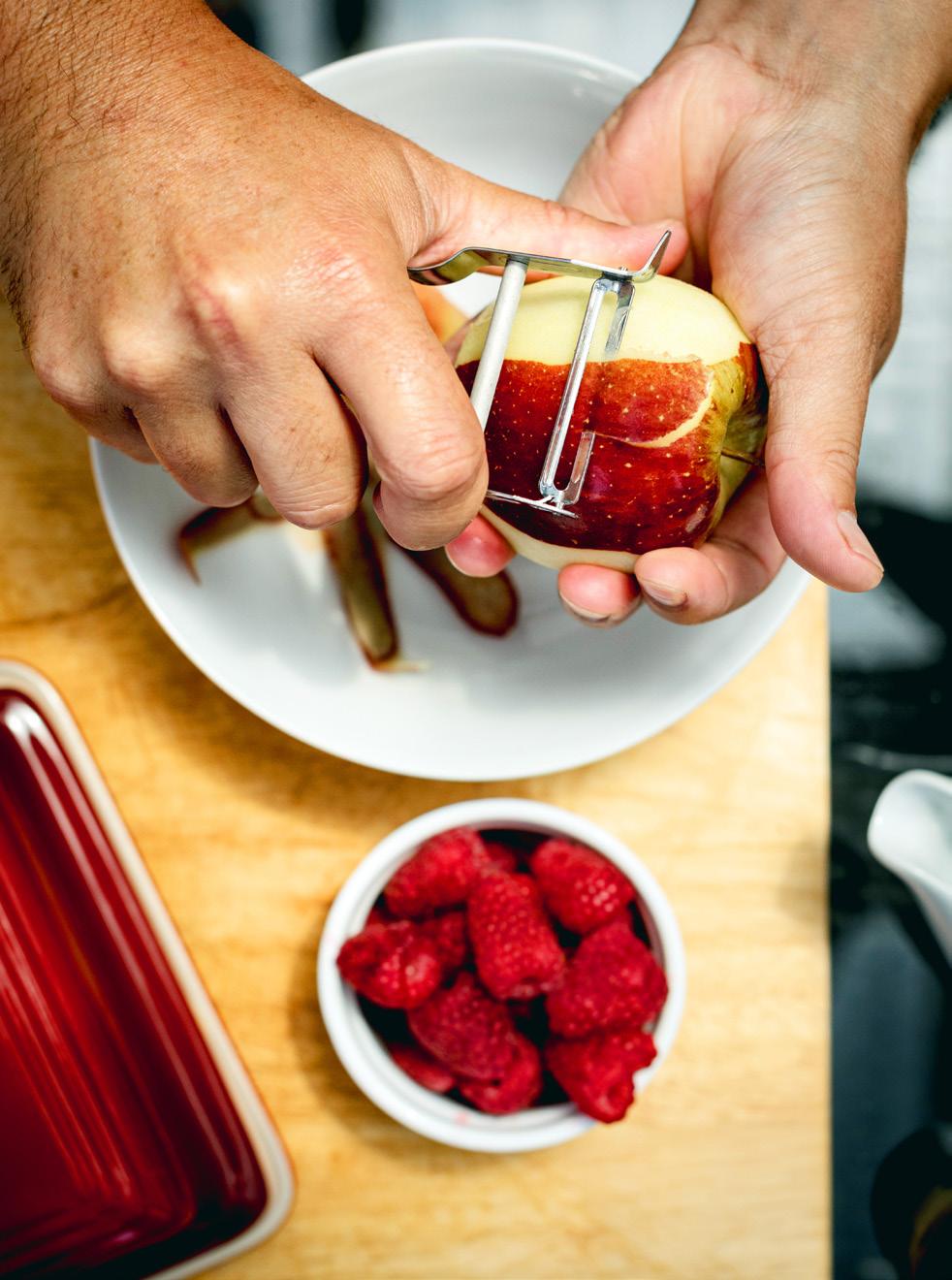KOE KOE Ā
Jacqui Forbes interview
Advocating for a world without waste to Papatūānuku – the concept that everything is related and interconnected. Jacqui sees the Para Kore values of whakapapa, māramatanga, kaitiakitanga, rangatiratanga and manaakitanga as being very similar to the values of Wakatū. She’s been professionally involved in the community recycling movement to reduce waste going to landfill for over 15 years, first at Xtreme Zero Waste and then at Para Kore, but her passion for this kaupapa she believes has been deeply embedded since childhood. ‘I grew up in my grandparents’ house, where thrift and reusing were strongly ingrained, so I’ve always had a natural instinct for valuing resources. Reusing and not wasting was tika, it was common sense and the norm growing up. Wasting something intrinsically
I n 2018, the Wakatū board set an ambitious target of zero waste by 2028 for the entire Wakatū Group. Jacqui Forbes (Ngāti Tama) has been supporting Wakatū on its pathway to this goal, in her role as kaihautū matua for Para Kore Marae Incorporated, a Māori zero-waste organisation based in Raglan. Jacqui discusses her longstanding commitment to zero waste, and some of the challenges that Wakatū may face on its journey to a low-waste future and, ultimately, zero waste.
doesn’t feel right to me.’
J
and tomatoes. Mum and the neighbours were
money, her mum, Marcia Amadio, would get maximum use out of everything – something she’d learnt to do from her own parents. ‘She’d mend sheets and towels and reuse containers and jars. Our main source of food was what we could grow in the garden and most of our kai came from our vege garden and things that would be in season or that we’d preserve, like raspberries, strawberries, gooseberries, nectarines, plums, peaches, apples
acqui’s whakapapa to Wakatū is through her
always sharing veges over the fence, and all the kids
father, Michael Uruwhero Carter, who grew
roamed through the properties and ate whatever
up in Taranaki, and her Te Tauihu connection
was in season.’
is through his great grandfather from Ngāti Tama,
The other aspect to why Jacqui is involved in
Tākaka, Mōhua. She says she became more aware
this work is the importance her family places on
of Wakatū and her Te Tauihu whakapapa when her
advocating for social change and people’s rights.
sister Kerensa Johnston started working for Wakatū.
‘My mum is an activist, has always been politically
The purpose of Para Kore is to educate and
38
Jacqui says because they didn’t have much
active,’ she explains, ‘a zero-waste, plant-based,
advocate from a Māori worldview for a world
Green Party member.’ Back in the 1980s, Jacqui’s
without waste. The kaupapa is based on whakapapa
mum was involved in local leading protest groups


















